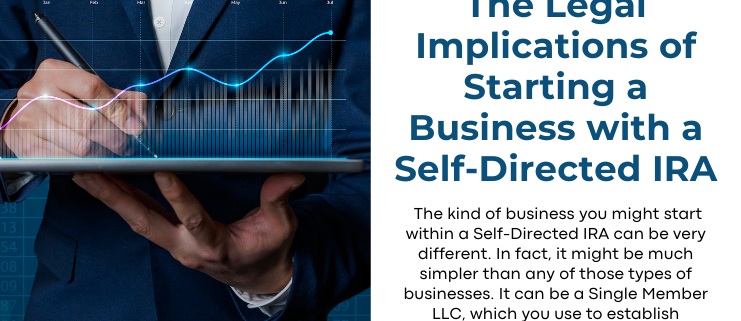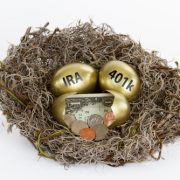The Legal Implications of Starting a Business with a Self-Directed IRA
When most people imagine starting up a business, it’s usually with a specific image in mind. Maybe they imagine the garage startup, a business that they can run from their home until it gets off the ground. Or they have fanciful vision of 1,000 employees. But the kind of business you might start within a Self-Directed IRA can be very different. In fact, it might be much simpler than any of those types of businesses. It can be a Single Member LLC, which you use to establish checkbook control in the account. Let’s explain.
Using a Self-Directed IRA to Start a Business: The Basics
To be clear, if you have an idea that you’re going to run your business from your garage, you probably shouldn’t use an IRA. An IRA, after all, is for retirement investments. A garage business is a personal investment—something you use personal assets for. If you were to place that business under your retirement account’s umbrella, the IRS could argue that you’re taking an early withdrawal on your retirement. That means painful taxes and fees. It’s far better to think of a business you start with a Self-Directed IRA as a separate, long-term investment.
The Legal Implications of Starting a Self-Directed IRA Business
Let’s say you do want to start a business within your Self-Directed IRA—you just want to know the rules first. Here’s what you’ll need to avoid to make sure you keep your business in good legal standing:
- Self-Dealing: You can’t use your Self-Directed IRA for immediate benefits. This is for retirement, after all. An example? You can’t use the funds of an IRA to pay yourself a salary or purchase goods and services from yourself or your business. The business must remain entirely separate from your personal affairs. Don’t transact between your business and your personal funds unless you plan on paying taxes outside of a retirement account.
- Disqualified Persons: Transactions with disqualified persons, such as family members (think: spouse, children, parents, and siblings) and entities they control, are always going to be prohibited. For example? You can’t have your Self-Directed IRA invest in a business you control or one that is owned by a close family member.
These are two simple legal implications, but they’re also far-ranging. If you can keep your business to retirement investment purposes only, then you begin to understand what it means to start a valid business venture within an IRA.
What Kinds of Businesses Can You Establish within an IRA?
A Single Member LLC is a simple, straightforward business many investors use within a Self-Directed IRA. This LLC can have its own checkbook. And that checkbook can revert to the IRA owner once you’ve established everything properly—ideally, with the help of a Self-Directed IRA administration firm like American IRA.
You can use your Self-Directed IRA to invest in all sorts of businesses, of course. You can invest in public stocks. You can invest in startups. But you have to make sure you put in the effort to keep the retirement assets separate from your personal assets to avoid the legal implications we mentioned above. If you can do that, you stand a good chance at enhancing the value of your IRA. Even more, you give yourself peace of mind that you’re building something special for your retirement—all while enjoying the protections that come with holding investments within a retirement account.
Interested in learning more about Self-Directed IRAs? Contact American IRA, LLC at 866-7500-IRA (472) for a free consultation. Download our free guides or visit us online at www.AmericanIRA.com.








